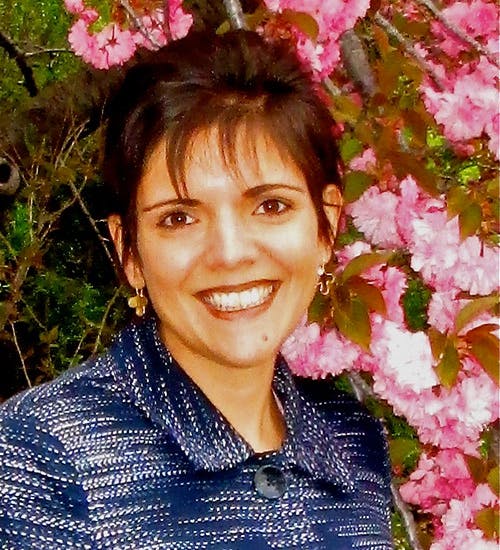Breaking the mold
For Triple Dawg Mariana Souto-Manning, culturally relevant teaching can be a much-needed window into early education classrooms. By honoring each student's unique identity and historical significance, Souto-Manning believes that knowledge and diversification can enhance traditional curriculums while maintaining traditional measures of literacy achievement.
"We need to start from the foundation that we're all cultural beings," said Souto-Manning, an associate professor and program coordinator of the early childhood education program at Teachers College, Columbia University. "So I'm not using culture as a code name for foreign—it's really understanding that we're all cultural beings."
Earlier this month, Souto-Manning led a series of events for the College of Education's Language and Literacy Education Graduate Organization (LLEGO). She lectured at a community-wide talk titled, "Why Culture Matters in Reading and Writing," and participated in a reading and signing for her most recent award-winning book, "Reading, Writing and Talk: Inclusive Teaching Strategies for Diverse Learners, K-2."

A former preschool and primary grades teacher, Souto-Manning currently teaches graduate courses at Columbia University related to early literacy, multicultural education and critical pedagogy.
Her three-year research study looks at how teachers can use inclusive strategies to teach young students language and literacy. The goal of the study is to show that children from all backgrounds serve to benefit from nontraditional ways of teaching traditional skills.
"We all have identities and our names all have histories behind them," said Souto-Manning. "We can build an inclusive community while at the same time reaching and surpassing academic standards while we develop cultural competence."
At the College's community-wide talk, Souto-Manning shared numerous examples of how culturally relevant and inclusive teaching can help foster academic success, cultural competence and critical consciousness.
In one class, a student's blind grandmother was invited to an interview where students could learn more about blind culture and obtain the skills needed to ask and design insightful questions. In another interview, an OBGYN was invited to explain how sonograms transform sounds into images.
"They are really gaining an understanding of the beauties and strengths of diversity instead of regarding diversity as deficits," said Souto-Manning. "But most of all, the kids see themselves as historical beings, and they recognize that they're all unique and worthy."
Souto-Manning currently directs the Quality Universally-Inclusive Early Responsive Education (QUIERE) Project, a U.S. Department of Education-funded project preparing teachers to work with young children with disabilities from low-income, immigrant and bilingual backgrounds.
She also collaborated with special education professor Cynthia Vail on the first iteration of a federally-funded project called Responsive Early Education for Diversity (REED). Today, the grant continues to train educators working with high-need infants, toddlers and young children.
"I developed as a researcher at the College of Education, and I still use the skills I obtained there all the time," said Souto-Manning. "I think that the making of a researcher or a professional is not as linear as the construction of a building."
From a critical perspective, her research examines the sociocultural and historical foundations of early childhood teacher education, early schooling, language development and literacy practices in pluralistic settings. Additionally, she looks at how children, families and teachers from diverse backgrounds shape and are shaped by discursive practices.
After obtaining a bachelor's degree in early childhood special education, a master's degree in early childhood education and a doctoral degree in language education at UGA's College of Education, Souto-Manning taught at the University of South Carolina before moving to Columbia University where she has been teaching graduate courses for nine years.
"I think one of the nice things about the College of Education is that there's a diversity of disciplines," said Souto-Manning. "I could actually learn about education from different angles and conduct research without having to go somewhere else."
Published last May, Souto-Manning's book, "Reading, Writing and Talk: Inclusive Teaching Strategies for Diverse Learners, K-2," will be receiving the 2016 Critics' Choice Award from the American Educational Studies Association this November.
"What I did was lay out a reason for why culture matters in reading and writing," she said. "I provided an understanding of culturally relevant teaching and explained how classroom curricula could serve as mirrors, windows and sliding glass doors for student success."